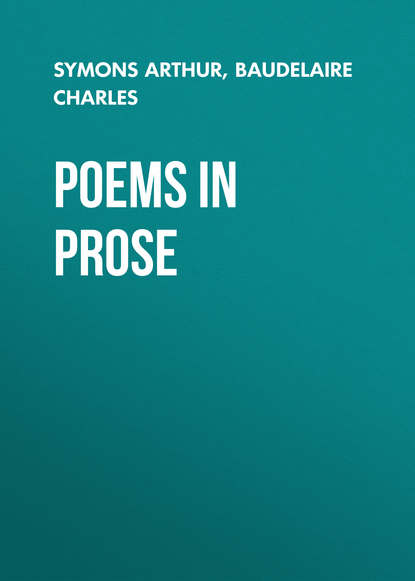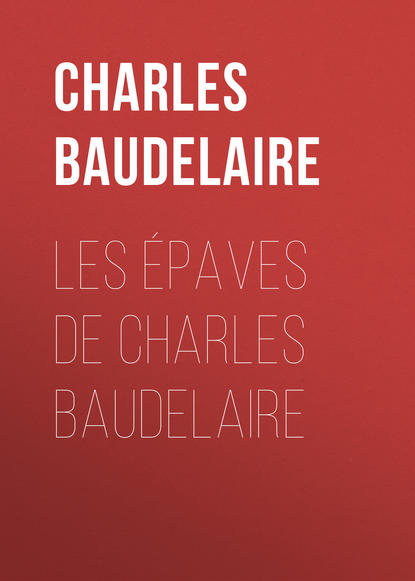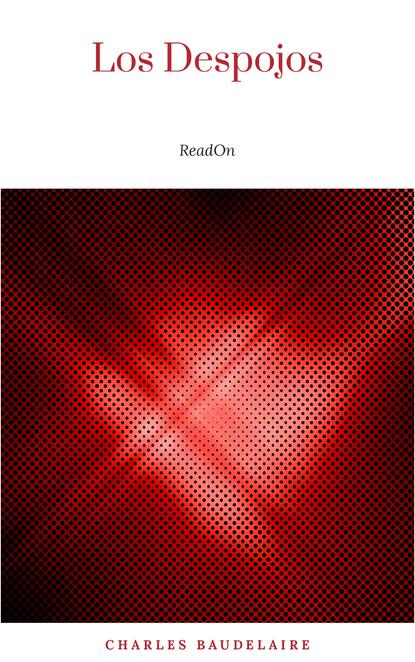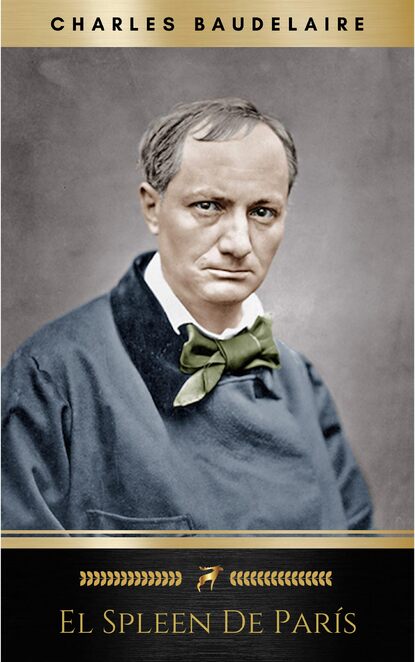 Полная версия
Полная версияПолная версия:
Charles Baudelaire Charles Baudelaire, His Life
- + Увеличить шрифт
- - Уменьшить шрифт

Théophile Gautier
Charles Baudelaire, His Life
THE LIFE AND INTIMATE MEMOIRS OF CHARLES BAUDELAIRE
I
The first time that we met Baudelaire was towards the middle of the year 1849, at the Hôtel Pimodan, where we occupied, near Fernand Boissard, a strange apartment which communicated with his by a private staircase hidden in the thickness of the wall, and which was haunted by the spirits of beautiful women loved long since by Lauzun. The superb Maryx was to be found there who, in her youth, had posed for "La Mignon" of Scheffer, and later, for "La Gloire distribuant des couronnes" of Paul Delaroche; and that other beauty, then in all her splendour, from whom Clesinger modelled "La Femme au serpent," that statue where grief resembles a paroxysm of pleasure, and which throbs with an intensity of life that the chisel has never before attained and which can never be surpassed.
Charles Baudelaire was then an almost unknown genius, preparing himself in the shadow for the light to come, with that tenacity of purpose which, in him, doubled inspiration; but his name was already becoming known amongst poets and artists, who heard it with a quivering of expectation, the younger generation almost venerating him. In the mysterious upper chamber where the reputations of the future are in the making he passed as the strongest. We had often heard him spoken of, but none of his works were known to us.
His appearance was striking: he had closely shaved hair of a rich black, which fell over a forehead of extraordinary whiteness, giving his head the appearance of a Saracen helmet. His eyes, coloured like tobacco of Spain, had great depth and spirituality about them, and a certain penetration which was, perhaps, a little too insistent. As to the mouth, in which the teeth were white and perfect, it was seen under a slight and silky moustache which screened its contours. The mobile curves, voluptuous and ironical as the lips in a face painted by Leonardo da Vinci, the nose, fine and delicate, somewhat curved, with quivering nostrils, seemed ever to be scenting vague perfumes. A large dimple accentuated the chin, like the finishing touch of a sculptor's chisel on a statue; the cheeks, carefully shaved, with vermilion tints on the cheek-bones; the neck, of almost feminine elegance and whiteness, showed plainly, as the collar of his shirt was turned down with a Madras cravat.
His clothing consisted of a paletot of shining black cloth, nut-coloured trousers, white stockings, and patent leather shoes; the whole fastidiously correct, with a stamp of almost English simplicity, intentionally adopted to distinguish himself from the artistic folk with the soft felt hats, the velvet waistcoats, red jackets, and strong, dishevelled beards. Nothing was too new or elaborate about him. Charles Baudelaire indulged in a certain dandyism, but he would do anything to take from his things the "Sunday clothes" appearance so dear and important to the Philistine, but so disagreeable to the true gentleman.
Later, he shaved off his moustache, finding that it was the remains of an old picturesqueness which it was both childish and bourgeois to retain. Thus, relieved of all superfluous down, his head recalled that of Lawrence Sterne; a resemblance that was augmented by Baudelaire's habit of leaning his temple against his first finger, which is, as every one knows, the attitude of the English humorist in the portrait placed at the beginning of his books.
Such was the physical impression made on us after our first meeting with the future author of "The Flowers of Evil."
We find in the "Nouveaux Camées parisiens" of Théodore de Banville, one of the poet's best and most constant friends whose loss we deplore, a portrait of Baudelaire in his youth. We are permitted to transcribe the lines here, prose equal in perfection to the most beautiful verse. It portrays Baudelaire as he is very little known, and as he was only at that particular time.
"In a portrait painted by Émile Deroy, one of the rarest works of art by modern painters, we see Charles Baudelaire at twenty years of age, at a time when, rich, happy, well-loved, already becoming celebrated, he wrote his first verses which were applauded by Paris, the literary leader of the whole world! O rare example of a divine face, uniting all graces, power, and most irresistible seductiveness! The eyebrow well-marked and curved like a bow, the eyelid warm and softly coloured; the eye, large, black, deep and of unequalled fire, caressing and imperious, embraces, interrogates and reflects all that surrounds it; the nose, beautifully chiselled, slightly curved, makes us dream of the celebrated phrase of the poet:
'Mon âme voltige sur les parfums, comme l'âme des autres hommes voltige sur la musique!' The mouth is arched and refined by the mind, and at the moment is of the delicate tint that reminds one of the royal beauty of freshly plucked fruit. The chin is rounded, but nevertheless haughty and powerful as that of Balzac. The whole face is of a warm pallor, under which the rose tints of beautiful rich blood appear. A newly grown beard, like that of a young god, decorates it. The forehead, high and broad, magnificently drawn, is ornamented by black, thick hair, naturally wavy and curly like that of Paganini, which falls over a throat worthy of Achilles or Antinous."
One must not take this portrait too literally. It is seen through the medium of painting and poetry, and embellished by a certain idealisation. Still, it is no less sincere and faithful of Baudelaire as he appeared at that time. Charles Baudelaire had his hour of supreme beauty and perfect expansion, and we relate it after this faithful witness. It is rare that a poet, an artist, is known in the spring-time of his charm.
Reputation generally comes later, when the fatigue of study, the struggles of life, and the torture of passion have taken away youthfulness, leaving only the mask, faded and altered, on which each sorrow has made her impress. It is this last picture, which also has beauty, that one remembers. With his evasive singularity was mingled a certain exotic odour like the distant perfume of a country well loved of the sun. It is said that Baudelaire travelled for some time in India, and this fact explains much.
Contrary to the somewhat loose manners of artists generally, Baudelaire prided himself upon observing the most rigid convenances; his courtesy was often excessive to the point of affectation. He measured his phrases, using only the most carefully selected terms, and pronounced certain words in a particular manner, as though he wished to underline them and give them a mysterious signification. Italics and capital letters seemed to be marked in his voice.
Exaggeration, much in honour at Pimodan's, he disdained as theatrical and coarse, though he allowed himself the use of paradox. With a very simple, natural, and perfectly detached air, as though retailing, à la Prudhomme, a newspaper paragraph on the state of the weather, he would advance monstrous axioms, or uphold with perfect sang-froid some theory of mathematical extravagance; for he had method in the development of his follies. His spirit was neither in words nor traits; he saw things from a particular point of view which changed their outlines, as objects seen in a bird's-eye view are changed from when seen at their own elevation; he perceived analogies, inappreciable to others, the fantastic logic of which was very striking.
His gestures were slow, sober, and rare; for he held southern gesticulation in horror. Neither did he like volubility of speech, and British reserve appealed to his sense of good form. One might describe him as a dandy strayed into Bohemia; but preserving there his rank, and that cult of self which characterises a man imbued with the principles of Brummel.
Such was our impression of Baudelaire at our first meeting, the memory of which is as vivid as though it had occurred yesterday.
We were in the big salon, decorated in the style of Louis XIV, the wainscot enriched and set off with dull gold of a perfect tone, projecting cornices, on which some pupil of Lesueur or of Poussin, having studied at the Hôtel Lambert, had painted nymphs chased by satyrs through reed-grass, according to the mythological taste of the period. On the great marble chimney, veined with vermilion and white, was placed, in the guise of a clock, a golden elephant, harnessed like the elephant of Porus in the battle of Lebrun, supporting on its back a tower with an inscribed dial-plate. The chairs and settees were old and covered with faded tapestry, representing subjects of the chase by Oudry and Desportes.
It was in this salon, also, that the séances of the club of hashish-eaters took place, a club to which we belonged, the ecstasies, dreams, hallucinations of which, followed by the deepest dejection, we have described.
As was said above, the owner of this apartment was Fernand Boissard, whose short, curly, fair hair, white and vermilion complexion, grey eyes scintillating with light and esprit, red lips and pearly teeth, seemed to witness to the health and exuberance of a Rubens, and to promise a life more than usually long. But, alas, who is able to foresee the fate of another? Boissard, to whom none of the conditions of happiness were lacking, fell a victim to a malady much the same as that which caused the death of Baudelaire.
No one was better equipped than Boissard. He had the most open-minded intelligence; he understood painting, poetry, and music equally well; but, in him, the dilettante was stronger than the artist. Admiration took up too much of his time; he exhausted himself in his enthusiasms. There is no doubt that, had necessity with her iron hand compelled him, he would have been an excellent painter. The success that was obtained by the "Episode de la retraite de Russie" would have been his sure guarantee. But, without abandoning painting, he allowed himself to be diverted by other arts. He played the violin, organised quartettes, studied Bach, Beethoven, Meyerbeer, and Mendelssohn, learnt languages, wrote criticisms, and composed some charming sonnets.
He was a voluptuary in Art, and no one enjoyed real masterpieces with more refinement, passion, and sensuousness than he did. From force of admiring, he forgot to express beauty, and what he felt so deeply he came to believe he had created. His conversation was charming, full of gaiety and originality. He had a rare gift of inventing words and phrases, and all sorts of bizarre expressions, that linger in the mind.
Like Baudelaire, amorous of new and rare sensations, even when they were dangerous, he wished to know those artificial paradises, which, later, made him pay so dearly for their transient ecstasies. It was the abuse of hashish that, undoubtedly, undermined his constitution, formerly so robust and strong.
This souvenir of a friend of our youth, with whom we lived under the same roof, of a romantic to whom fame did not come because he loved too much the work of others to dream of his own, will not be out of place here, in this introduction destined to serve as a preface to the complete works of a departed friend of us both.
On the day of our visit Jean Feuchères, the sculptor, was there. Besides his talent in statuary, Feuchères had a remarkable power of imitation, such as no actor was able to compass. He was the inventor of the comic dialogues between Sergeant Bridais and gunner Pitou, which even to-day provoke irresistible laughter. Feuchères died first, and, of the four artists assembled on that day at the Hôtel Pimodan, we only survive.
On the sofa, half recumbent, her elbow resting on a cushion, with an immobility of pose she often assumed, Maryx listened dreamily to Baudelaire's paradoxes. No surprise was manifested on her almost Oriental countenance. She wore a white robe, oddly ornamented with red spots like tiny drops of blood, and while Baudelaire talked she lazily passed the rings from one hand to another – hands as perfect as was her figure.
Near the window, the "Femme au serpent" (it is not permitted to give her name) having thrown back her lace wrap and delicate little green hood, such as never adorned Lucy Hocquet or Madame Baurand, over an arm-chair, shook out her beautiful fawn-brown hair, for she had come from the Swimming Baths, and, her person all draped in muslin, exhaled, like a naiad, the fragrant perfume of the bath. With her eyes and smile she encouraged this tilt of words, and threw in, now and again, her own remarks, sometimes mocking, sometimes appreciative.
They have passed, those charming leisure hours, when poets, artists, and beautiful women were gathered together to talk of Art, literature, and love, as the century of Boccaccio has passed. Time, Death, the imperious necessities of life, have dispersed this mutually sympathetic group; but the memory is dear to all those who had the good fortune to be admitted to it. It is not without an involuntary sigh that these lines are penned.
Shortly after this first meeting Baudelaire came to see us and brought a volume of his verses. He himself relates this visit in a literary article which he wrote about us in terms of such admiration that we dare not transcribe them.
From that moment a friendship was formed between us, in which Baudelaire always wished to conserve the attitude of favourite disciple to a sympathetic master, although he owed his success only to himself and his own originality. Never in our greatest familiarity did he relax that deference of manner which to us seemed excessive and with which we would gladly have dispensed. He acknowledged it à vive voix, and the dedication of the "Flowers of Evil" which is addressed to us, consecrates in its lapidary form the absolute expression of his loving and poetical devotion.
If we insist on these details, it is not for their actual worth, but solely because they portray an unrecognised side of Baudelaire's character.
This poet, whom people try to describe as of so satanic a nature, smitten with evil and depravity (literary, be it well understood), knew love and admiration in the highest degree.
But the distinguishing feature of Satan is that he is incapable of admiration or love. The light wounds him, glory is a sight insupportable to him, and makes him want to veil his eyes with his bat-like wings. No one, even at the time of fervour for romanticism, had more respect and adoration for the great masters than Baudelaire. He was always ready to pay his legitimate tribute of praise to those who merited it, and that without the servility of a disciple, without fanaticism; for he himself was a master, having his realm, his subjects, and his coinage of gold.
It would perhaps be fitting, after having portrayed Baudelaire in all the freshness of his youth and in the fulness of his power, to present him as he was during the later years of his life, before Death stretched out his hand towards him, and sealed the lips which will no longer speak here below. His face was thin and spiritualised; the eyes seemed larger, the nose thinner; the lips were closed mysteriously, and seemed to guard ironical secrets. The vermilion tints of the past had given place to a swarthy, tired yellow. As to the forehead, it had gained in grandeur and solidity – so to speak; one would have said that it was carved in some particularly durable marble. The fine hair, silky and long, nearly white, falling round a face which was young and old at the same time, gave him an almost sacerdotal appearance.
Charles Baudelaire was born in Paris on April 21st, 1821, in an old turreted house, in the Rue Hautefeuille. He was the son of M. Baudelaire, the old friend of Condorcet and of Cabanis, a distinguished and well-educated man who retained the polished manners of the eighteenth century, which the pretentious tastes of the Republican era had not so entirely effaced as is sometimes thought. This characteristic was strong in the poet, who always retained the outward forms of courtesy.
In his young days Baudelaire was in no way out of the ordinary, and neither did he gain many laurels at his college prize distributions. He even found the B.A. examination a great difficulty, and his degree was honorary. Troubled by abstract questions, this boy, so fine of spirit and keen of intelligence, appeared almost like an idiot. We have no intention of declaring this inaptitude as a sign of cleverness; but, under the eye of the pedagogue, often distrait and idle, or rather preoccupied, the real man is formed little by little, unperceived by masters or parents.
M. Baudelaire died, and his wife, Charles's mother, married General Aupick, who became Ambassador to Constantinople. Dissension soon arose in the family à propos of young Baudelaire's desire for a literary career. We think it wrong to reproach parents with the fears they manifest when the gift of poetry develops in their offspring. Alas! They are right. To what sad, precarious, and miserable existence does he vow himself – he who takes up a literary career? From that day he must consider himself cut off from human beings, active life; he no longer lives – he is the spectator of life. All sensation comes to him as motif for analysis. Involuntarily he develops two distinct personalities, and, lacking other subjects, one becomes the spy on the other. If he lack a corpse, he stretches himself on the slab of black marble and buries the scalpel deep in his own heart. And what desperate struggles must he endure with the Idea, that elusive Proteus, who takes all manner of forms to escape captivity, and who will only deliver his oracle when he has been forced to show himself in his true aspect! This Idea, when one holds it, frightened, trembling, vanquished, one must nourish, clothe, fold round in that robe so difficult to weave, to colour and to arrange in graceful curves. During this long-drawn-out task the nerves become irritable, the brain on fire, the sensibilities quickened, and then nervous disorder comes with all its odd anxieties, its unconscious hallucinations, its indefinable sufferings, its morbid capriciousness, its fantastic depravity, its infatuations and motiveless dislikes, its mad energy and nervous prostration, its searches for excitement and its disgust for all healthy nourishment.
We do not exaggerate the picture; but we have before us only the talented poets, crowned with glory, who have, at the last, succumbed on the breast of their ideal. What would it be if we went down into the Limbo where the shades of still-born children are wailing, like those abortive endeavours and larvæ of thought which can achieve neither wing nor form? Yes! Desire is not power, nor is Love possession!
Faith is not enough. Another gift is necessary.
In literature, as in religion, work without grace is futile.
Although they do not suspect this region of anguish, for, to know it really, it is necessary to go down oneself, not under the guidance of a Vergil or a Dante, but under that of a Lousteau, of a Lucien de Rubempré, parents instinctively display the perils and suffering of the artistic life in the endeavour to dissuade the children they love, and for for whom they desire one more happy and ordinarily human.
Once only since the earth has revolved round the sun have parents ardently wished to have a son's life dedicated to poetry. The child received the most brilliant literary education, and, with the irony of Fate, became Chapelain, the author of "La Pucelle"! and this, one might even say, was to play with sinister fortune!
To turn his stubborn ideas into another course, Baudelaire was made to travel. He was sent a great distance, embarking on a vessel, the captain of which took him to the Indian seas. He visited the Isles of Mauritius, Bourbon, Madagascar, Ceylon perhaps, and some parts of the "Isle of the Ganges"; but he would not, for all that, give up his intention of becoming a man of letters. They tried vainly to interest him in commerce, but a trade in cattle to feed Anglo-Indians on beefsteak had no attractions for him. All he retained of this voyage was a memory of great splendour which remained with him all his life. He gloried in a sky where brilliant constellations, unknown in Europe, were to be found; the magnificent vegetation with the exotic perfumes, the elegantly odd pagodas, the brown faces and the soft white draperies – all that in Nature was so warm, powerful, and full of colour.
In his verses he was frequently led from the mists and mud of Paris to the countries of light, azure, and perfume. Between the lines of the most sombre of his poems, a window is opened through which can be seen, instead of the black chimneys and smoky roofs, the blue Indian seas, or a beach of golden sand on which the slender figure of a Malabaraise, half naked, carrying an amphora on the head, is running. Without penetrating too deeply into the private life of the poet, one can imagine that it was during this voyage that Baudelaire fell in love with the "Venus noire," of whom he was a worshipper all his life.
When he returned from his distant travels he had just attained his majority; there was no longer any reason – not even financial, for he was rich for some time at least – to oppose Baudelaire's choice of a vocation; it was only strengthened by meeting with obstacles, and nothing would deter him.
Lodged in a little apartment under the roof of the same Hôtel Pimodan where later we met him, as has been related earlier in this introduction, he commenced that life of work, interrupted and resumed, of varied studies, of fruitful idleness, which is that of each man of letters seeking his particular field of labour. Baudelaire soon found his. He conceived something beyond romanticism – a land unexplored, a sort of rough and wild Kamtschatka; and it was at the extreme verge that he built for himself, as Sainte-Beuve, who thoroughly appreciated him, said, a kiosque of bizarre architecture.
Several of the poems which are to be found amongst the "Flowers of Evil" were already composed. Baudelaire, like all born poets, from the start possessed a form and style of which he was master; it was more accentuated and polished later, but still the same. Baudelaire has often been accused of studied bizarrerie, of affected and laboured originality, and especially of mannerisms. This is a point at which it is necessary to pause before going further. There are people who have naturally an affected manner. In them simplicity would be pure affectation, a sort of inverted mannerism. Long practice is necessary to be naturally simple. The circumvolutions of the brain twist themselves in such a manner that the ideas get entangled and confused and go up in spirals instead of following straight lines. The most complicated, subtle, and intense thoughts are those which present themselves first. They see things from a peculiar angle which alters the aspect and perspective. All fancies, the most odd, unusual, and fantastically distant from the subject treated of, strike them chiefly, and they know how to draw them into their woof by mysterious threads.
Baudelaire had a brain like this, and where the critic has tried to see labour, effort, excess, there is only the free and easy manifestation of individuality. These poems, of a savour so exquisitely strange, cost him no more than any badly rhymed commonplace.
Baudelaire, always possessed of great admiration for the old masters, never felt it incumbent upon him to take them for models; they had had the good fortune to arrive in the early days of the world, at the dawn, so to speak, of humanity, when nothing had been expressed yet, and each form, each image, each sentiment, had the charm of virginal novelty. The great commonplaces which form the foundation of human thought were then in all their glory and sufficed for simple geniuses, speaking to simple people.
But, from force of repetition, these general subjects of verse were used up like money which, from continual circulation, has lost its imprint; and, besides, Life had become more complex, fuller of originality, and could no longer be represented in the artificial spirit of another age.
As true innocence charms, so the trickery of pretended innocence disgusts and displeases. The quality of the nineteenth century is not precisely naïveté, and it needs, to render its thoughts and dreams explicit, idiom a little more composite than that employed in the classics. Literature is like a day; it has its morning, noon, evening, and night. Without vain expatiation as to whether one should prefer dawn or twilight, one ought to paint the hour which is at hand, and with a palette of all the colours necessary to give it its full effect. Has not sunset its beauty as well as dawn? The copper-reds, the bronze-golds, the turquoise melting to sapphire, all the tints which blend and pass away in the great final conflagration, the light-pierced clouds which seem to take the form of a falling aerial Babel – have they not as much to offer to the poet as the rosy-fingered Dawn? But the time when the Hours preceded the Chariot of Day is long since fled.







